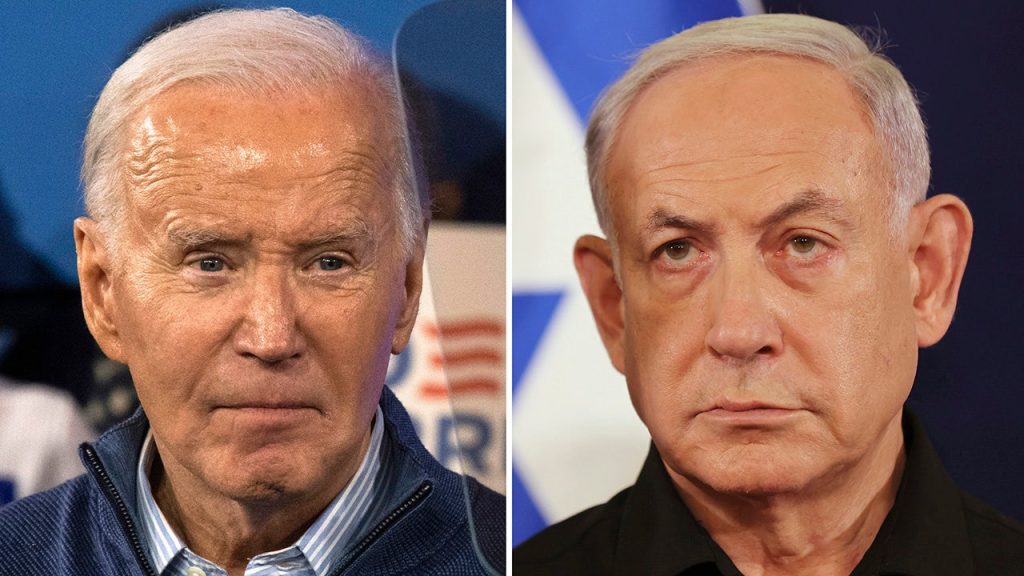Israeli Prime Minister Benjamin Netanyahu disagrees with President Biden’s description of a cease-fire deal proposed by Israel, stating that it is incomplete and less expansive than suggested. Netanyahu claimed that there are additional details that were not presented to the public, emphasizing that Israel can halt the war for up to six weeks but not longer. He expressed concerns that the enemies of Israel, including Iran, are closely observing the situation to see if Israel will capitulate.
Israel has been resisting Biden’s cease-fire proposal since it was announced on Friday, with a top adviser to Netanyahu describing it as “not a good plan.” Additionally, two Israeli ministers have threatened to resign from Netanyahu’s coalition if he accepts Biden’s deal, further highlighting the internal tensions surrounding the issue. National Security Minister Itamar Ben-Gvir, a right-wing member of Netanyahu’s government, issued the threat on Monday morning, indicating a potential rift within the Israeli government.
President Biden outlined his proposed roadmap to an enduring cease-fire and the release of all hostages in a speech from the White House on Friday. The plan, developed through intensive diplomacy with the leaders of Israel, Qatar, Egypt, and other Middle Eastern countries, consists of three phases. The first phase, lasting six weeks, involves a full cease-fire, a withdrawal of Israeli forces from populated areas in the Gaza Strip, and the release of hostages. In return, Israel would release hundreds of Palestinian prisoners and allow civilians to return to their homes in all of Gaza.
Hamas responded positively to Biden’s plan, particularly appreciating the call for a permanent cease-fire, the withdrawal of Israeli forces from Gaza, the facilitation of reconstruction, and an exchange of prisoners. The statement from the militant group indicates a willingness to engage in the proposed peace process. However, the ongoing disagreement between Israel and the US over the specifics of the deal, as highlighted by Netanyahu, continues to create uncertainties regarding the prospects for a resolution to the conflict.
The situation in Gaza remains complex, with intermittent combat and diplomatic negotiations shaping the landscape. The divergent perspectives of key stakeholders, including Israel, the US, and Hamas, further complicate the path towards peace and a lasting ceasefire. The tensions within the Israeli government, as reflected in the threats of resignation by ministers in Netanyahu’s coalition, underscore the challenges in reaching a consensus on a potential agreement that addresses the interests and concerns of all parties involved.
As the conflict continues to unfold, with President Biden’s proposed plan facing resistance from Israel and receiving cautious approval from Hamas, the prospects for a peaceful resolution remain uncertain. The disagreements over the details of the cease-fire deal, as highlighted by Netanyahu’s comments, reveal the complexities and deep-rooted issues that underlie the conflict in Gaza. Despite diplomatic efforts and calls for a lasting ceasefire, the road to peace remains fraught with challenges and obstacles that must be navigated carefully by all parties involved.













